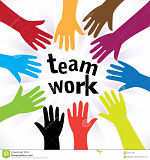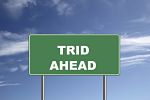Amusement vs Instruction
House flipping reality shows are created to amuse, not to instruct and you ought to view these shows only for amusement not to be instructed on how to in fact flip houses lucratively. As you will read in this blog article, what creates worthy tv doesn’t always make for smart and useful real estate investing.
Rehab Focused
House Flipping TV series mostly emphasize on rehabbing; the procedure of spinning distraught homes into striking homes. In a solitary episode, most of what viewers are shown has to do with restoring or remodeling the house, handling the workers and all of the drama that goes along with rehabbing. The reality of Real Estate Investing is that the less time you devote to rehabbing, and the more time you devote to locating great deals, negotiating awesome deals, decreasing costs through imagination and then leaving the deal to the correct buyer or tenant, the more cash you will earn. Rehabilitating houses is in reality only a small portion of a prosperous real estate investor’s time, not the bulk.
Only Ugly Houses
Flipping Houses shows highlight ugly houses and their subsequent transformation. The awful looking “before” at the beginning followed by the gorgeous looking “after” at the end make for nice bookends in a TV episode. But what about all the pretty houses that smart investors like myself buy and resell and make huge profits on without ever having a dramatic before and after? There is a ton of investing money made on pretty deals too but that wouldn’t make for good television.
Over-renovating
Seeing all the major construction and other substantial overhauls that are executed on house flipping tv series might stimulate an investor to rip down and annihilate a section of a property. This is a major difference in what usually happens with prosperous real estate flippers actually do which comprises of NOT doing any major construction, executing surface remodels such as new flooring and a new coat of paint. A common plot you will find in house flipping is an overly excited rookie investor that has seen some house flipping series, take a hammer to a wall, abolishing it so that a entirely new floor plan outline can be put together. As a result, they lose cash on the deal because they overly rehabbed. A good rule to live by in flipping houses is that if you catch yourself with a mallet you’re most likely about to make an error.
Real Earnings
What you see on some show might not tell the entire story in respects to the ultimate income figures. A blogger recently went as far as to prove that a flipper from one of these shows would have needed all of the materials they used to renovate donated, just to break even in the deal. Always remember Reality tv is not real it is entertainment, and things are altered and attuned to make the show more amusing. So do not think you will strike it rich by doing what they show.
Accumulating Fix Up Concepts
Some might dispute that someone can amass renovation ideas by viewing these sort of shows. You can get a lot better ideas on paint colors, grains, supplies, by looking at a local builder’s model home then from viewing a series taped in a diverse market than your own. There’s a lot more instruction in a builder’s nearby built house than everything you will see on TV.
TV’s Impact
Studies have exposed that your brain is livelier when you are asleep than when you view tv. The influence TV has on your brain can consequently decrease your capability to distinguish truth from works of fiction and is even extra intensified when you are exhausted, like late nights. So you must be even more aware of the prospect of accepting untrue data when viewing TV, particularly when you are worn-out.
“You’re Just Envious”
Some might cynically be wondering if I could just be jealous that I do not have a show of my own. Well, I have certainly been telephoned by some production firms and casting managers in the past in respects taking part in, or starring in, a realism tv real estate show. But so far, I have not found the right fit due to the detail that what I do (cleverly invest in real estate for extreme payoffs and marginal risks) doesn’t usually come across entertaining. The “before” and “after” photos of my deals aren’t remarkable and I don’t have any drama with any of my employees. In fact, viewing a typical day as I invest wouldn’t harvest much showbiz worth at all. The only bit of possible drama in my work would come from driven sellers but they wouldn’t want to be shown on camera, displaying their distraught choice to sell their house to me. So as of right now, there hasn’t been a show idea that would be amusing for audiences that shows what I do every day.
In Closing
House Flipping TV Shows are made for amusement purposes and there is slight regard given to teaching viewers on how to flip houses effectively. In fact, if you are, or want to be, a real estate investor, you would most likely be better off looking for a different show to amuse you because unintentionally, you might be influenced by what you see and start to make unfortunate financial choices.
![mortgage-hi[1]_opt](http://www.freedommentors.com/wp-content/uploads/2015/12/mortgage-hi1_opt.png)
![chinnho[1]](http://www.freedommentors.com/wp-content/uploads/2015/12/chinnho1.jpg)
![Rich Dad , Poor Dad Book[1]_opt](http://www.freedommentors.com/wp-content/uploads/2015/12/Rich-Dad-Poor-Dad-Book1_opt.jpg)
![graduation-money[1]_opt](http://www.freedommentors.com/wp-content/uploads/2015/12/graduation-money1_opt.jpg)
![Half_Million[1]_opt](http://www.freedommentors.com/wp-content/uploads/2015/12/Half_Million1_opt.png)


